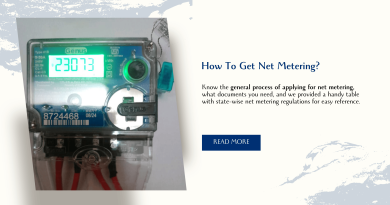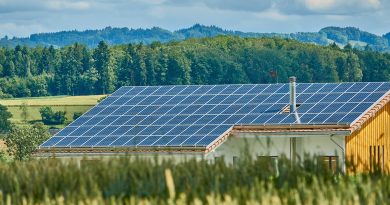How To Wash Solar Panels On Roof?
Cleaning your solar panels regularly is crucial for maintaining their efficiency and prolonging their lifespan. Dust, dirt, and debris can accumulate on the surface, reducing the amount of sunlight that reaches the photovoltaic cells. This guide will walk you through the safety precautions, necessary equipment, and step-by-step instructions for cleaning your roof-mounted solar panels. We’ll also provide tips for maximizing cleaning efficiency and preventing damage to your panels.
Table of Contents
- 1 Safety First: Essential Precautions Before Cleaning
- 2 Necessary Equipment and Supplies
- 3 Step-by-Step Cleaning Process
- 4 Dealing with Stubborn Dirt and Debris
- 5 Cleaning Solar Panels in Different Weather Conditions
- 6 Maintaining Solar Panel Cleanliness Between Cleanings
- 7 Professional Solar Panel Cleaning Services
- 8 Common Cleaning Mistakes to Avoid
- 9 The Impact of Cleaning on Solar Panel Efficiency and Lifespan
- 10 The Role of Solar Panel Warranties in Covering Cleaning Costs
- 11 Solar Panel Cleaning Do’s and Don’ts
- 12 Conclusion
- 13 FAQ Section
Safety First: Essential Precautions Before Cleaning
1. Check Weather Conditions
- Avoid Wet or Windy Conditions: Clean your panels on a clear, calm day to prevent slips or falls.
- Avoid Extreme Heat: Cleaning during cooler parts of the day (morning or late afternoon) prevents water from evaporating too quickly and reduces the risk of thermal shock to the panels.
2. Use Proper Safety Gear
- Wear Non-Slip Shoes: Ensure your shoes have good traction to prevent slipping on the roof.
- Use a Safety Harness: If the roof is steep, use a safety harness to prevent falls.
- Work with a Partner: Having someone with you increases safety and provides assistance if needed.
3. Turn Off the Solar System
- Shut Down the System: Before cleaning, turn off the solar panel system according to the manufacturer’s instructions to avoid electrical hazards.
Necessary Equipment and Supplies
1. Cleaning Tools
- Soft-Bristled Brush: A soft brush or squeegee on an extendable pole helps remove dirt without scratching the panels.
- Hose with a Spray Nozzle: Use a garden hose with a spray nozzle for rinsing panels without high pressure.
2. Cleaning Solutions
- Mild Soap Solution: Use a mild, non-abrasive soap mixed with water. Avoid harsh chemicals that could damage the panels.
- Deionized Water: Deionized or distilled water prevents mineral deposits from forming on the panels.
3. Safety Equipment
- Ladder: Use a sturdy ladder to access the roof safely.
- Safety Harness: Essential for steep roofs or working at height.
- Non-Slip Shoes: Ensure you have proper footwear to prevent slipping.
Step-by-Step Cleaning Process
1. Pre-Cleaning Inspection
- Check for Damage: Inspect the panels for cracks, loose wiring, or any other damage that could be exacerbated by cleaning.
- Remove Loose Debris: Use a soft brush to gently remove loose dirt, leaves, or bird droppings.
2. Rinsing the Panels
- Use a Hose: Rinse the panels with a garden hose to remove surface dirt. Avoid using high-pressure washers, as they can damage the panels.
- Spray at an Angle: Spray water at an angle to ensure dirt flows off the panels and doesn’t get lodged in crevices.
3. Applying the Cleaning Solution
- Mix Soap and Water: Prepare a mild soap solution using non-abrasive soap and deionized water.
- Apply with a Soft Brush: Gently scrub the panels using a soft brush or sponge, applying minimal pressure.
4. Rinsing Off the Soap
- Rinse Thoroughly: After scrubbing, rinse the panels thoroughly with a hose to remove all soap residue.
- Check for Streaks: Ensure no streaks are left behind, as they can reduce efficiency.
5. Drying the Panels
- Air Dry: If possible, let the panels air dry naturally.
- Use a Squeegee: For faster drying or to prevent water spots, use a squeegee to remove excess water.
Dealing with Stubborn Dirt and Debris
1. Bird Droppings and Tree Sap
- Soak Before Scrubbing: For stubborn dirt, soak the area with soapy water for a few minutes before gently scrubbing.
- Use Isopropyl Alcohol: For tree sap or other sticky substances, a small amount of isopropyl alcohol can be effective.
2. Avoid Abrasive Tools
- No Abrasive Pads: Never use abrasive pads, steel wool, or harsh chemicals, as they can scratch the panels and reduce their efficiency.
Cleaning Solar Panels in Different Weather Conditions
1. Cold Weather
- Avoid Freezing Conditions: Don’t clean panels when temperatures are below freezing, as the water can freeze and cause damage.
- Use Lukewarm Water: In cold weather, use lukewarm water to clean the panels, but avoid hot water to prevent thermal shock.
2. Hot Weather
- Clean in the Morning/Evening: Clean early in the morning or late in the evening when the panels are cooler to avoid water evaporation and streaking.
3. Dusty Conditions
- More Frequent Cleaning: In dusty areas, clean the panels more frequently to prevent a thick layer of dust from reducing efficiency.
Maintaining Solar Panel Cleanliness Between Cleanings
1. Install Bird Guards
- Prevent Nesting: Bird guards can prevent birds from nesting under the panels and reduce the amount of droppings on them.
2. Regular Inspections
- Check for Debris: Regularly inspect your panels for debris buildup, especially after storms or high winds.
3. Rain as a Natural Cleaner
- Let Rain Help: In many cases, regular rainfall can help keep panels clean, reducing the need for frequent manual cleaning.
Professional Solar Panel Cleaning Services
1. When to Hire Professionals
- Difficult Access: If your panels are difficult to reach or you’re uncomfortable working at heights, consider hiring a professional.
- Stubborn Stains: Professionals have the right tools and expertise to handle tough stains without damaging the panels.
2. Cost Considerations
- Service Costs: Professional cleaning costs can range from ₹500 to ₹2,000 per panel, depending on the complexity of the job.
3. Choosing a Service
- Licensed and Insured: Always choose a licensed and insured cleaning service to ensure safety and quality.
Common Cleaning Mistakes to Avoid
1. Using High-Pressure Washers
- Avoid High Pressure: High-pressure washers can damage the panels and void the warranty.
2. Cleaning Panels in Direct Sunlight
- Avoid Direct Sunlight: Cleaning panels in direct sunlight can cause water to evaporate quickly, leaving streaks and spots.
3. Neglecting Safety
- Prioritize Safety: Never compromise on safety by skipping harnesses or proper footwear, especially on steep or slippery roofs.
The Impact of Cleaning on Solar Panel Efficiency and Lifespan
1. Efficiency Gains
- Increased Output: Regular cleaning can improve solar panel efficiency by up to 20%, especially in dusty or polluted areas.
- Maximizing Sunlight Exposure: Clean panels ensure maximum sunlight absorption, leading to higher energy output.
2. Prolonged Lifespan
- Preventing Damage: Removing dirt, debris, and corrosive substances like bird droppings helps prevent long-term damage, extending the panels’ lifespan.
The Role of Solar Panel Warranties in Covering Cleaning Costs
1. Warranty Coverage
- Check Your Warranty: Some solar panel warranties may require regular cleaning to maintain coverage, while others may not cover damage from improper cleaning.
2. Insurance Policies
- Consider Insurance: Review your homeowner’s insurance to see if it covers damage to solar panels during cleaning or if additional coverage is needed.
Solar Panel Cleaning Do’s and Don’ts
| Do’s | Don’ts |
|---|---|
| Use a soft brush and mild soap for cleaning | Don’t use abrasive tools or high-pressure washers |
| Clean panels in the morning or evening | Don’t clean panels in direct, hot sunlight |
| Rinse panels thoroughly with deionized water | Don’t leave soap residue on panels |
| Inspect panels for damage before cleaning | Don’t clean panels during extreme weather |
| Use a safety harness and non-slip shoes | Don’t skip safety precautions |
Conclusion
Regular cleaning of your roof-mounted solar panels is essential for maintaining their efficiency and extending their lifespan. By following the proper safety precautions, using the right equipment, and avoiding common mistakes, you can ensure your panels continue to operate at peak performance. Whether you choose to clean your panels yourself or hire a professional service, keeping them clean will maximize your energy production and protect your investment in renewable energy.
FAQ Section
1. How often should I clean my solar panels?
It’s recommended to clean your solar panels at least twice a year, or more frequently if you live in a dusty or polluted area.
2. Can I use a high-pressure washer to clean my solar panels?
No, using a high-pressure washer can damage the panels and void your warranty. Stick to a garden hose with a gentle spray nozzle.
3. What’s the best time of day to clean solar panels?
The best time to clean your panels is in the early morning or late evening when the panels are cooler, reducing the risk of thermal shock and streaks.
4. Can I clean my solar panels during the winter?
Yes, but avoid cleaning during freezing conditions. Use lukewarm water and be cautious of icy surfaces on the roof.
5. Should I hire a professional to clean my solar panels?
If your panels are difficult to reach, if you’re uncomfortable working at heights, or if there are tough stains, hiring a professional is recommended.



